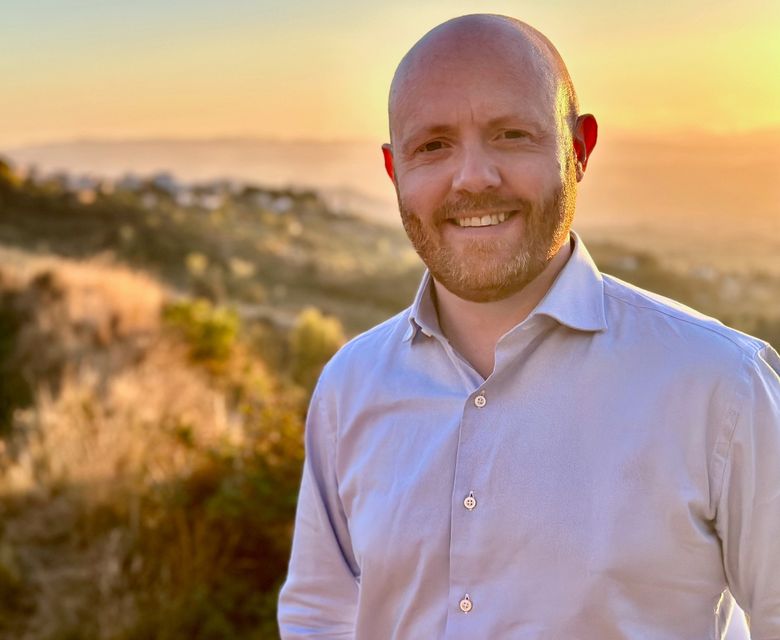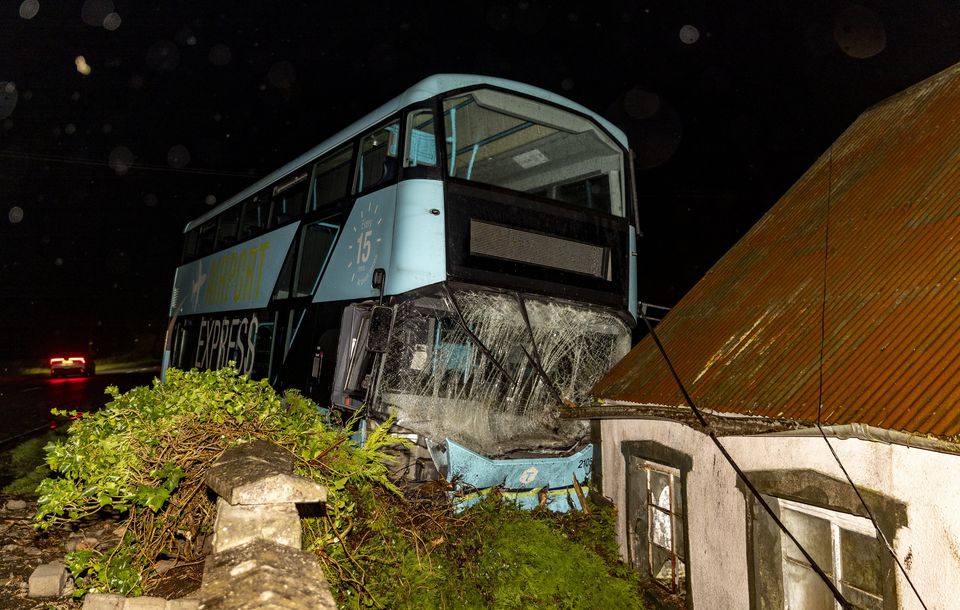The past 12 months have broken yet more records for Northern Ireland in terms of weather patterns, and local experts have warned that it is only likely we will see more “extreme” weather events in future.
We saw Storm Darragh hit in early December, causing widespread power outages and travel disruption after Storm Bert caused flooding in counties Down and Tyrone in November.
January saw the region experience its coldest day in over a year, with widespread icy conditions, closely followed by Storm Isha in the same month — the strongest storm in NI for more than a decade, with wind speeds reaching 81mph in some areas.
In April, NI experienced rainfall 41% above average for the month.
Read more
There was only 80% of average sunshine hours in the same month — probably exacerbated by Storm Kathleen, which again caused multiple power outages, damage from fallen trees. flying debris and a number of flight and sailing cancellations.
The UK in general — and NI in particular — experienced the warmest May on record since 1884.
While parts of England experienced greater-than-average rainfall, NI was unusually dry, seeing just 63% of average rainfall for the month.
Watch: Section of west Belfast peace wall reduced to rubble after Storm Darragh
Dr Donal Mullan is a senior lecturer in the School of Natural and Built Environment at Queen’s University Belfast.
He said that experiencing the warmest May since records began is “the most notable example” of dramatic changes in our weather patterns compared to long-term averages.
The month had an average temperature 2.4°C above average for the time of year (12.9°C).
“We also had an unusually dull year, with sunshine hours down by over 15% across much of the region in spring and summer,” he added.
“Summer was colder than average, but the other seasons were all warmer than average — particularly spring with temperatures between 1°C and 1.5°C higher than average in most areas.
“Northern Ireland, like other global regions, has always experienced weather extremes over long time-scales — and we see evidence of this in weather records in the region since the 1800s.
“However, these extremes are becoming more frequent and intense due to climate change. Record breaking temperatures in June 2021 — with 31.3°C in Castlederg — and extensive flooding in Newry and Downpatrick in October 2023 provide recent examples of how these extremes are increasing in a warming climate.”
Barra Best has been BBC NI’s stalwart weatherman for almost 15 years now.
Barra Best
He told the Belfast Telegraph that even during that time, the number of records that have been broken is an incredible amount.
“In the first quarter of this century essentially, I think all the records which were set in the whole of the last century, have already been broken,” he explained.
“So, it kind of gives you an idea that something is changing. It can’t be just a coincidence that all these records have been broken in the first 25 years just by chance. If it takes 100 years to set them all and now it kind of gives you an idea of what’s happening.
“Storm Darragh also didn’t come too long after Storm Conal, which wreaked havoc across parts of Britain. Thankfully, we avoided that, but we also had a few in September and October.
“All of these are happening and what we’re seeing is more extreme events. They’re the ones we need to prepare for in the future.”
Barra noted that while climate change is the main factor contributing to these more extreme conditions, and that prevention is key on a larger scale, Northern Ireland needs to look at future protections on a smaller and more local scope for inevitably worse weather to come.
“There’s obviously been measures that have been put in place with previous storms,” he continued.
“We had the big, big flooding event in Strabane in 1987. The whole town centre was absolutely wrecked and they built big flood defence walls along the town so that can’t happen in the future.
“We do learn from some past events, but it’s the uncertainty of what’s heading our way because of climate change. How do you prepare best for that?
“We [in Northern Ireland] are right at the edge of the Atlantic, we are in the firing line of storms because we’re the first place it hits normally.
“If they only become more frequent and more dangerous like the ones we’ve seen in the past, we have to prepare for those, otherwise it’s just going to leave us in a very vulnerable state.”
A bus collided with a building outside Templepatrick as Storm Darragh arrives in Northern Ireland on December 7th 2024 (Photo by Kevin Scott)
Dr Mullan added that in terms of possible weather patterns across 2025, it is probable that the year will once again be warmer than the long-term average, and the likelihood of extreme events like heat waves and flooding continues to become a little bit higher.
“The difference between our average summer and winter temperature is only about 10°C due to the moderating influence of the Atlantic Ocean,” he said.
“Compared to countries with a more continental climate, seasons have never really existed to any great degree in Northern Ireland — with mild winters and relatively cool summers.
“We are now seeing a warming of all seasons, but winters have warmed more than any other season — with fewer snow and frost days.
“This has reduced our already small temperature range even more, making the seasons feel like they merge into one giant ‘autumn’.”
The reduced number of frosty days is a sign of milder temperatures, but also wetter winters too, and with the thermometer blurring more often, it does feel like it’s one season all year sometimes, and Barra added that forward planning based on stereotypical expectations of the seasons doesn’t really work anymore.
“It’s one of those questions I always get asked: ‘I’m trying to book my wedding date or I’m planning something outdoors, what do you recommend?’
“You kind of look at the seasonal averages and say it’s typically warmer etc, but you couldn’t go on that.
“There’s a reason why this island is called the Emerald Isle, and it’s not just made up. It’s because of rain.
“You just can’t plan these things and you’d love to be able to tell people they can book a barbecue or wedding for a certain day, but you’d be the worst in the world if it all goes pear-shaped.”


